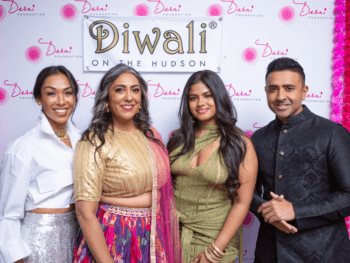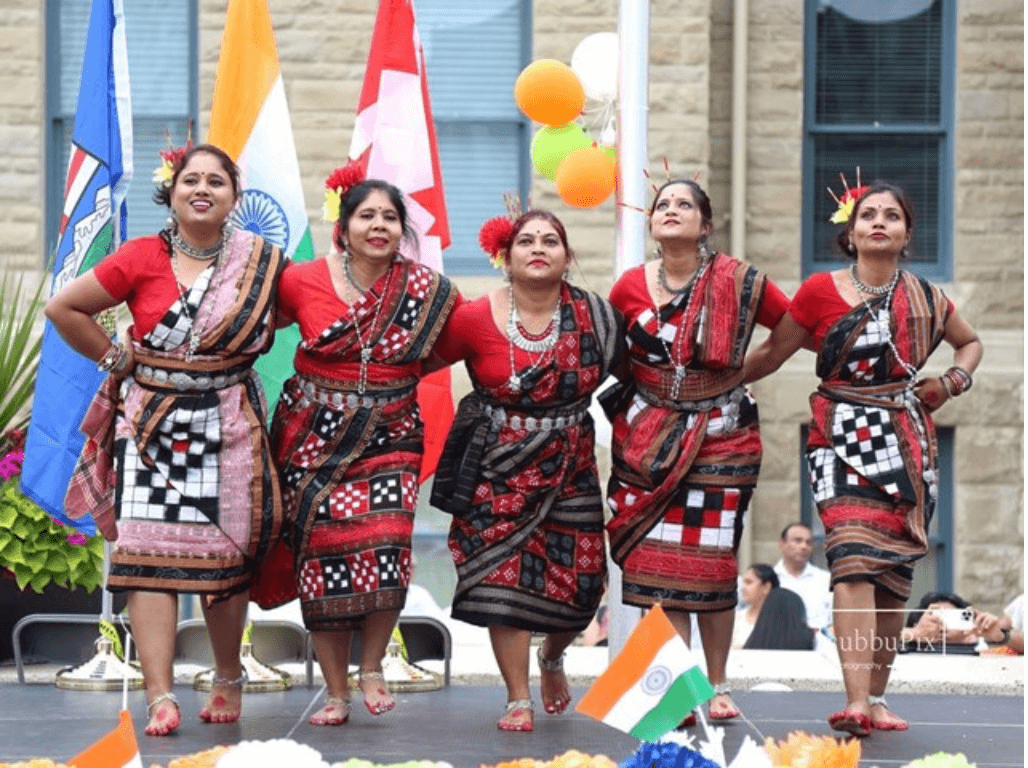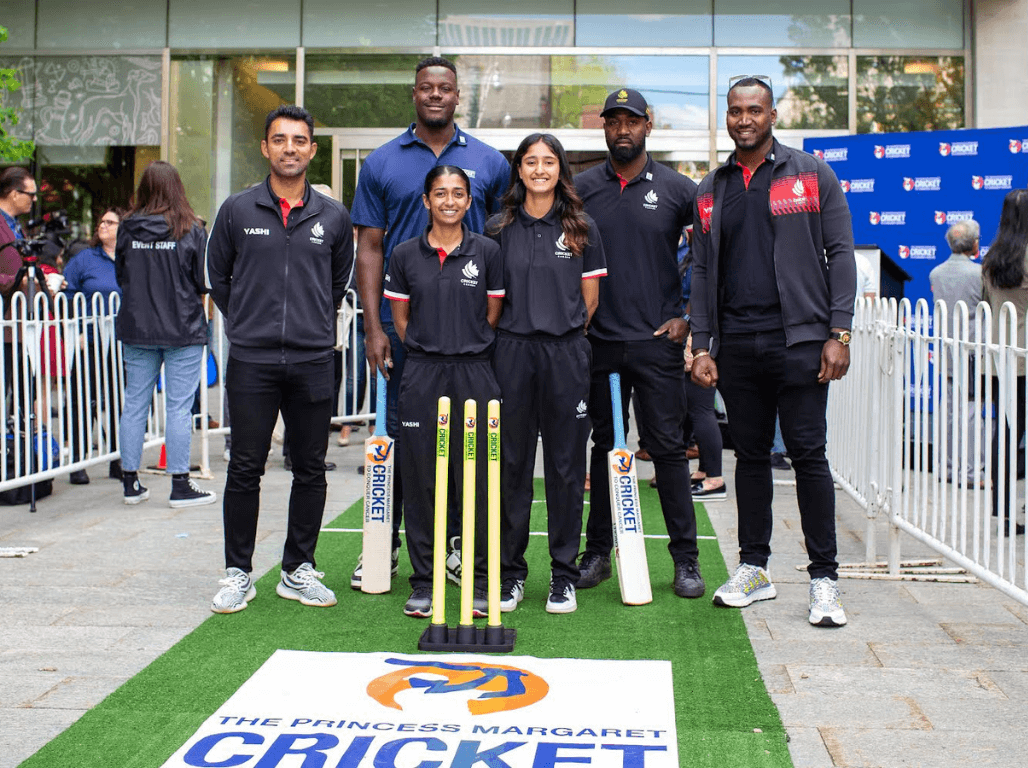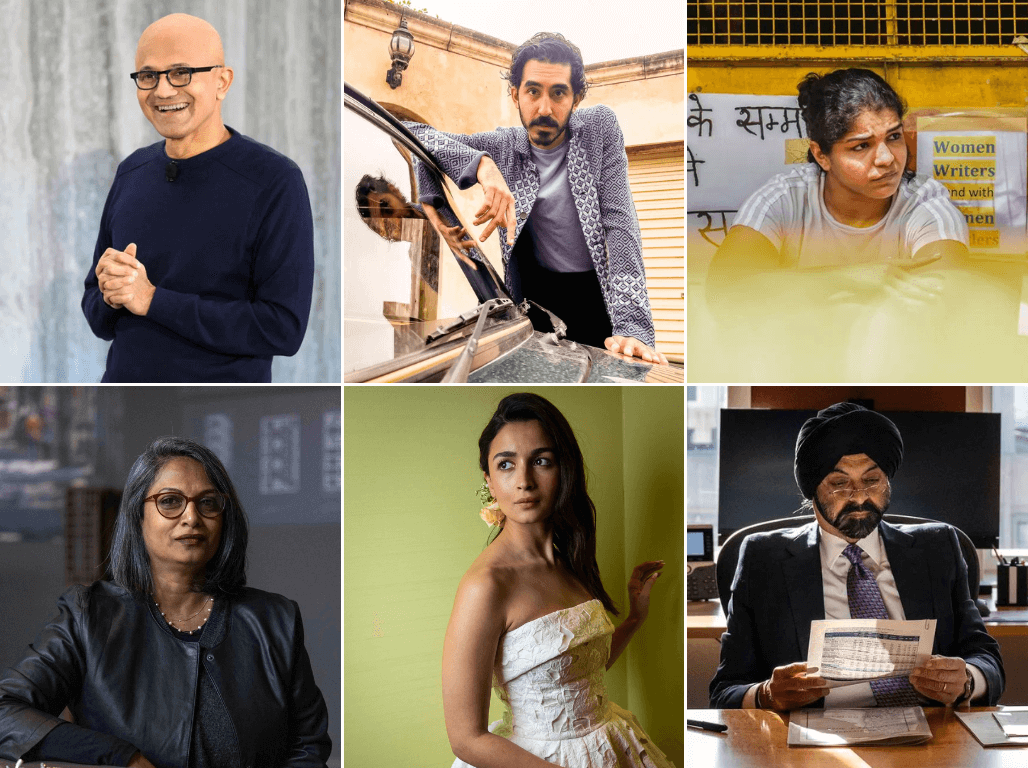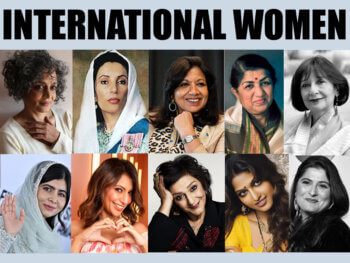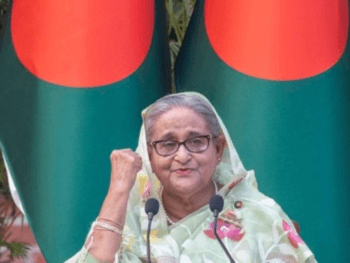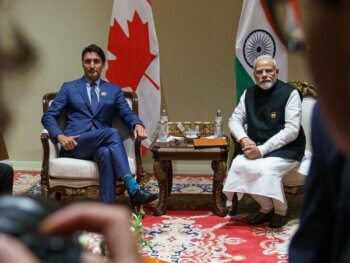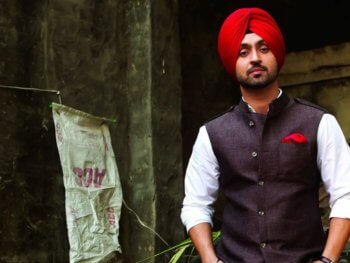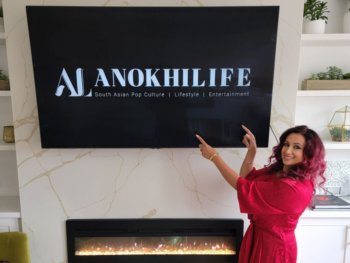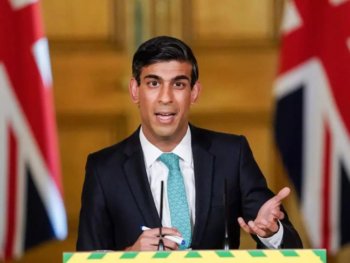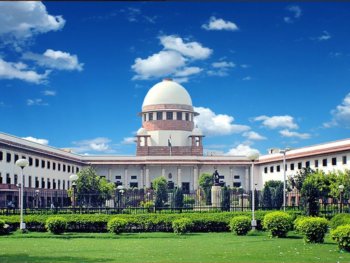TIME Magazine released their annual TIME100 Next 2021 List and here are the South Asians who are being looked as the future changemakers of today.
ARTISTS
Salman Toor
Artist
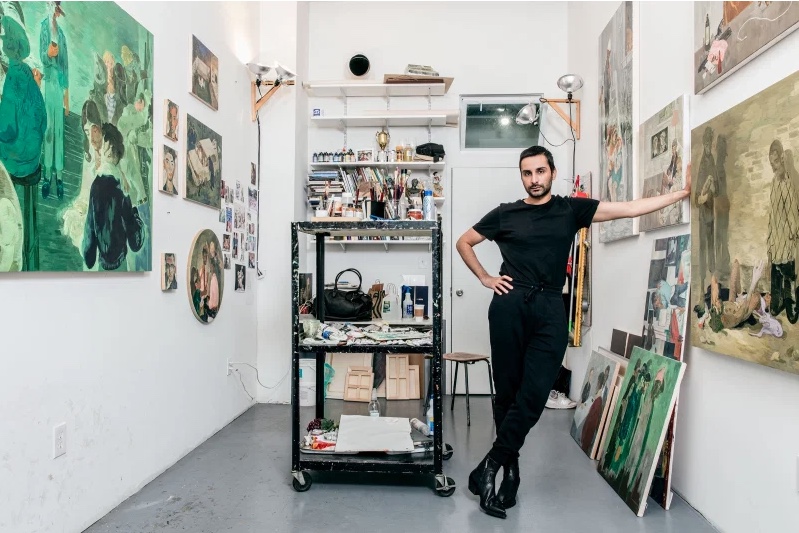
“In his painting The Star, Salman Toor uses classical techniques—deploying brushstrokes and lighting reminiscent of the 1800s—to render a thoroughly modern scene: a young South Asian man sits backstage in front of a mirror, wearing a furry pink jacket, as a makeup artist and a hairstylist fuss over him. That these contrasts might seem unexpected is exactly the point. Toor, who was born in Lahore, Pakistan, and lives in New York City, has made his career subverting the styles of old paintings by centering openly queer men of South Asian descent in an attempt to, as he says in the audio guide for The Star, “play with the idea” of societal norms. Now more people than ever are paying attention: the artist recently secured his first solo show at the Whitney Museum of American Art in New York City, which will be on display through April 2021. ” —Suyin Haynes
PHENOMS
Maitreyi Ramakrishnan
Actor
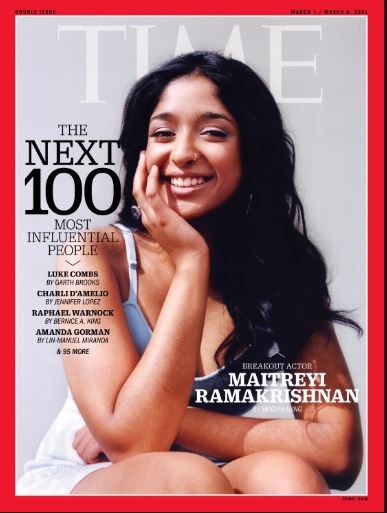
“When you’re a minority woman with your own show, you gotta represent. It’s a tough job to be in that spotlight, where you are scrutinized for your every action, but it’s exhilarating too. People come up to you at the airport or online and say those three magic words: “I feel seen.” It’s a huge responsibility—and Maitreyi Ramakrishnan is exactly the kind of talented young woman who is up to the task.
While she might come off as a carefree teen in her hilarious TikToks and Instagram videos, Maitreyi—who plays the lead role in Never Have I Ever—is a gifted comic actress. She studies her craft and takes it seriously. Moreover, she’s an artist who cares deeply about the material she’s performing, and what it’s saying. She has an activist’s heart and wants to use her platform to help others.
What’s most extraordinary about Maitreyi is that when you’re with her, you think you’re simply talking to a cool, smart teenager, but later, when you see her work onscreen, you realize you were actually interacting with a great artist at the beginning of her journey.” —Mindy Kaling
LEADERS
Vijaya Gadde
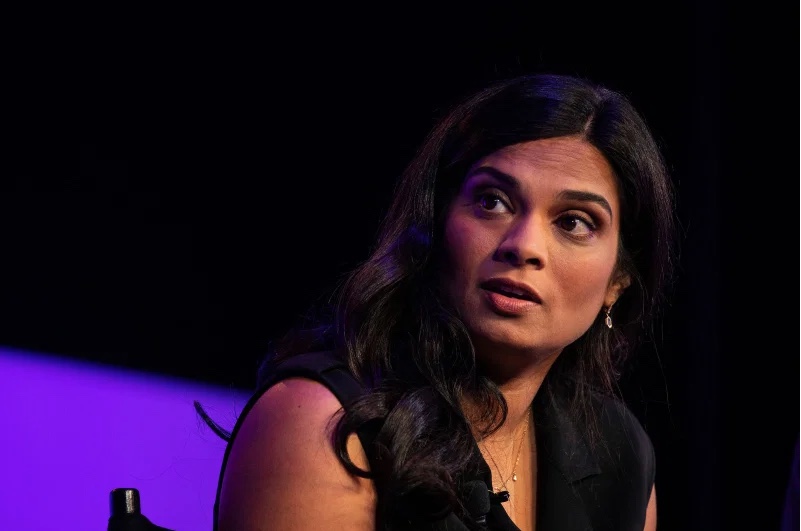
“Twitter CEO Jack Dorsey was on a private island in the Pacific when he found out President Trump had been suspended from his platform. Conveying the news, on Jan. 6, was Vijaya Gadde, Twitter’s top lawyer and head of policy. In a phone call, first reported by the New York Times, Gadde told Dorsey that the decision had been taken to reduce the risk of further violence after the attack on the Capitol earlier that day. Within two days, Gadde and a team of other employees had persuaded a hesitant Dorsey to ban Trump permanently.
Gadde, 46, is one of Twitter’s most powerful executives. Her boss, Dorsey, has delegated to her Twitter’s content-moderation decisions; she was the architect of the 2019 decision to ban all political advertising, and is responsible for the warning labels that Twitter applied to COVID-19 and election-interference misinformation in 2020. While Twitter is still home to much misinformation and harassment, Gadde’s influence is slowly turning the company into one that sees free speech not as sacrosanct—but as just one human right among many that need to be weighed against one another.” —Billy Perrigo
Apoorva Mehta

“In the early days of the COVID-19 pandemic, Instacart faced a tidal wave of orders, as people with means opted en masse to pay the service’s workers to buy groceries for them. Apoorva Mehta, the company’s 34-year-old founder and CEO, calls that period a “wartime moment”: “We just didn’t have enough shoppers.” Instacart went on a hiring binge in March 2020, bringing on 300,000 gig workers in a matter of weeks; the next month, it announced it would hire a quarter-million more.
But as usage soared, Instacart faced new criticism about the way it treated its workers, including labyrinthine sick-pay policies, frequent rule changes for shoppers and demanding performance metrics. And after pouring more than $20 million into a controversial ballot initiative in California, Instacart—alongside other firms such as Uber and Lyft—decisively won that bid last fall to avoid classifying their workers as employees under state law. Mehta says, “This is going to be a conversation that we’re going to have as a society over the next decade or so,” about the gig economy: “The ecosystem that we want to build is one that recognizes that flexibility is going to be an important part of people’s work.”
In the meantime, Instacart—which raised more than $500 million in venture-capital funding last year—continues to expand. “The smartphone is the supermarket of the future,” Mehta says. “We are going to help co-create that.” —Alejandro de la Garza
Rishi Sunak
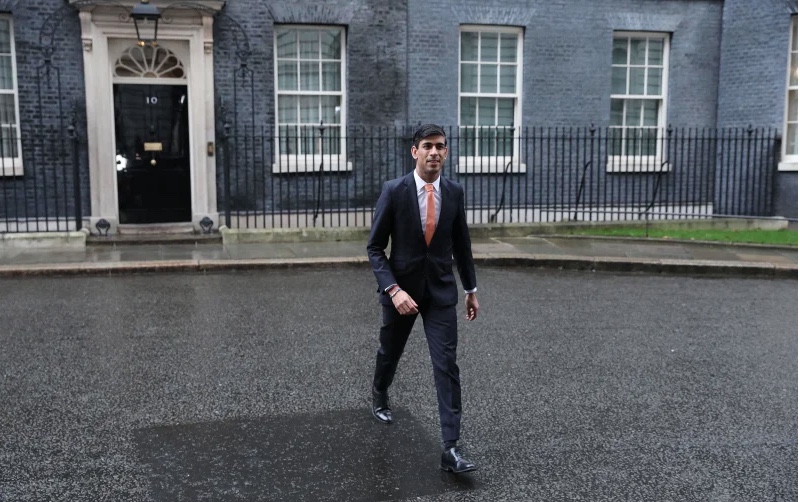
“Little more than a year ago, Rishi Sunak was an unknown junior minister in the British government. But after the 40-year-old former hedge-fund partner was appointed to lead Britain’s Treasury in February 2020, he quickly became the benevolent face of the government’s response to the COVID-19 pandemic, approving large handouts for many citizens whose jobs were disrupted by the virus. (The already unemployed and self-employed received less support.) Sunak also oversaw a policy that, when infections were low over the summer, subsidized dining out at restaurants in an attempt to revive the economy. The perceived generosity—and his youthful charm—earned him a legion of fans, but his policy was blamed when cases of COVID-19 began to rise shortly after. Critics also point out that because he has consistently advocated for early relaxation of lockdown rules, Sunak bears perhaps more responsibility than most for Britain’s failures in responding to the virus, which has left more than 115,000 people dead—the fifth highest toll in the world. Nonetheless, Sunak remains the country’s most popular politician, according to the pollster YouGov. And he’s the oddsmakers’ favorite to be Britain’s next Prime Minister.” —Billy Perrigo
ADVOCATES
Chandra Shekhar Aazad
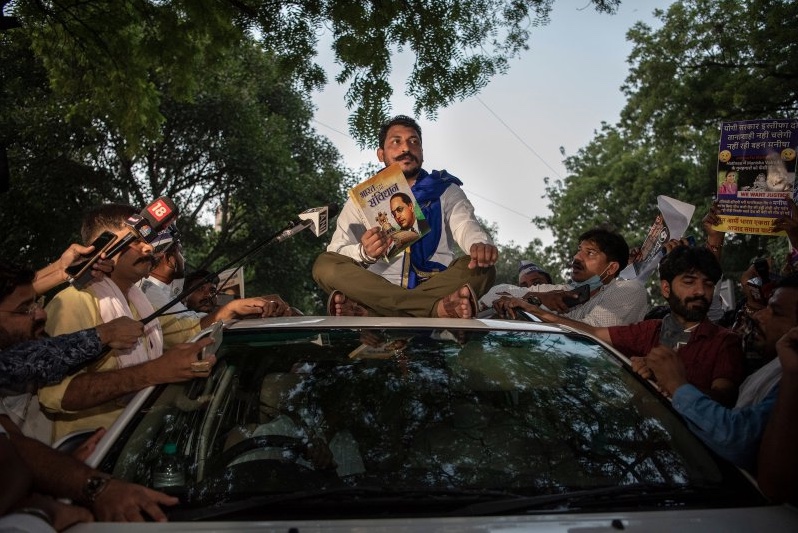
“Chandra Shekhar Aazad, 34, is a Dalit—a member of India’s most oppressed caste group. The movement he leads, the Bhim Army, runs schools to help Dalits escape poverty through education. It also practices a distinct brand of assertiveness, sweeping into villages on loud motorbikes to protect victims of caste-based violence and organizing provocative demonstrations against discrimination. In September 2020, when police in the state of Uttar Pradesh delayed investigation of the fatal gang-rape of a 19-year-old Dalit woman, allegedly perpetrated by four dominant-caste men, Aazad and the Bhim Army spearheaded a campaign for justice. The protests and public outcry that followed eventually led to the accused rapists’ arrests. (They deny the charges.) Aazad has also lent his support to several other progressive movements, including recently to farmers protesting against corporate agricultural reforms. He hopes to turn the reach of the Bhim Army—and his own growing popularity—into wins at the ballot box, and in March 2020 launched a political party. Its first real test comes during elections next year in Uttar Pradesh, where Hindu nationalists are politically dominant. Despite the Bhim Army’s muscular stance, Aazad has also cultivated an aura of charismatic approachability through deft use of social media; even Aazad’s luxuriant mustache—a style seen by some dominant castes as a status symbol—is a form of resistance. By challenging the notion that Dalits should be deferential, says Dhrubo Jyoti, a Dalit journalist at the Hindustan Times, Aazad and the Bhim Army “have visually and psychologically changed the pitch of caste resistance in India.” —Billy Perrigo
Shikha Gupta

“In a crisis, small acts can make a big impact. And in extraordinary times, ordinary people, driven by service, can do extraordinary things. The early days of the COVID-19 pandemic were some of the darkest in America’s history. A leadership vacuum from the White House contributed to health care professionals across the country lacking the personal protective equipment they needed to stay safe and save lives.
Dr. Shikha Gupta wasn’t on the White House Task Force. She wasn’t a governor or a member of Congress. She held no title other than doctor and citizen. But when she and her colleagues saw a need—and a hashtag—they met the moment and took action. Powered by a dedicated coalition of medical professionals and other team members, the Get Us PPE organization—where Gupta is the executive director—has helped distribute more than 6.5 million pieces of PPE to frontline workers.
Their fight, like this pandemic, is not done. But across the country, millions of people working to save lives can do so with confidence because of Gupta and her colleagues’ small acts and incredible impact.”—Congressman Andy Kim
INNOVATORS
Ranga Dias

“Let’s be clear: hoverboards, magnetic levitation trains and resistance-free power lines are not coming this year or next. But thanks to Ranga Dias, they’re closer than they ever were. Those technologies (and many more) rely on developing new superconductors: materials through which energy can move with no resistance. The catch is that supercold temperatures have long been necessary for superconductors to work, making them impractical. So Dias, an assistant professor of mechanical engineering at the University of Rochester, came up with a solution that could pave the way for future innovations: a room-temperature superconductor that’s superdense instead of supercold. Dias developed a material made of hydrogen, sulfur and carbon, squeezed at a pressure equivalent to 2.5 million atmospheres. The extreme compression eliminates electrical resistance, allowing energy to traverse with ease. Dias is aware of the breakthrough nature of his work. “People have been trying to develop superconductors for a century,” he says. They missed their chance in the 20th. In the 21st, thanks to Dias, they just might succeed.” —Jeffrey Kluger
Lina Khan
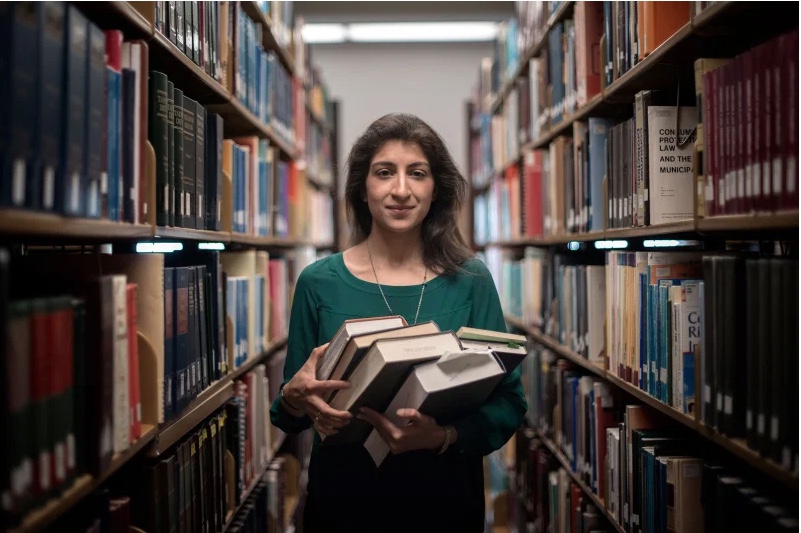
“For too long, giant tech companies have thrown around their weight to crush competition, exploit our data and spread disinformation. They may think they’re too big to be held accountable, but Lina Khan is proving them wrong.
Since Lina published her blockbuster Yale Law Journal article “Amazon’s Antitrust Paradox” in 2017—written while she was still a law student, I should add—she has been the leading intellectual force in the modern antitrust movement. Her writings and advocacy have pushed scholars, lawyers, activists and public officials to think differently about Big Tech. She’s also been a critical figure in government, providing advice to countless elected officials, working at the Federal Trade Commission and staffing the House Judiciary Committee’s Subcommittee on Antitrust. Lina’s deep knowledge and commitment to discovering the facts on the ground have not only drawn attention to the problem of concentration but shown how to address it.
As Google, Apple, Facebook and Amazon face growing scrutiny, we have a huge opportunity to make big, structural change by reviving antitrust enforcement and fighting monopolies that threaten our economy, our society and our democracy. I can’t wait to see how Lina will continue to shape that debate.”—Senator Elizabeth Warren
Rohan Pavuluri
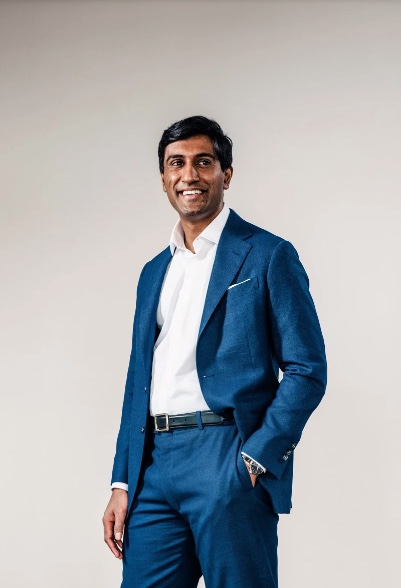
As the COVID-19 pandemic continues to put Americans in financial distress, more and more people have lost jobs, incurred expensive medical bills and faced other hardships. Filing for personal bankruptcy can be an effective way to eliminate debt and re-enter the economy, but high legal fees and complex paperwork can make it difficult to seek that relief, especially for low-income families. That’s why, in 2018, 25-year-old Rohan Pavuluri founded Upsolve, a nonprofit that offers a free online tool to help users fill out bankruptcy forms on their own. To date, Upsolve has helped U.S. users relieve more than $300 million in debt. “We’ve found a way to use technology to address a civil rights injustice at scale,” Pavuluri says. —Mariah Espada
Dr. Ayesha Verrall
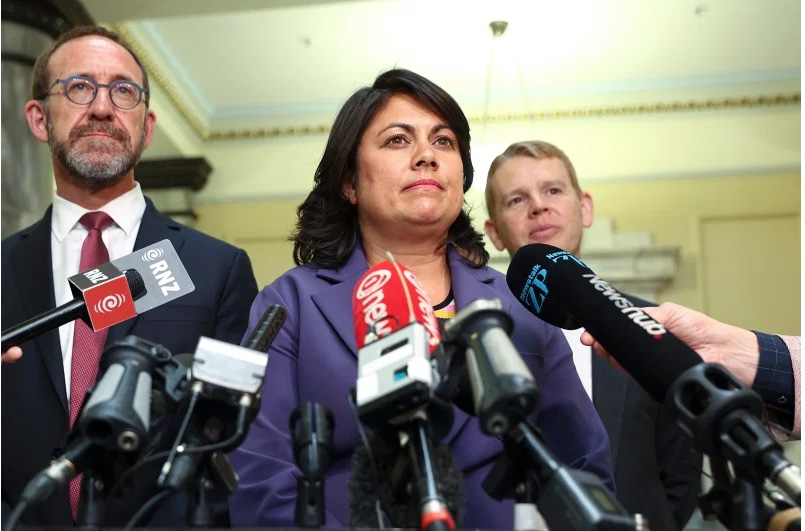
“In 2020, the world discovered a new set of heroes: people who have committed their lives to understanding infectious diseases, whose expertise in the throes of the pandemic became lifesaving. Dr. Ayesha Verrall is one such person. She has spent her career seeking to stop the spread of infectious diseases, and in a moment of global crisis, she used her knowledge to advocate a science-based approach to tackling COVID-19 and improving contact tracing that has helped save lives in New Zealand, especially among those most vulnerable. Ayesha has always understood, and seen firsthand, the link between infectious disease and inequality. That makes health care political, and that made Ayesha political too. Her wisdom on this topic is one of the many reasons that I asked her to join my Cabinet in November.
I feel privileged that in Ayesha, we have someone with expertise, with passion, but also with heart, someone who can tell you the stories of past patients who have touched her as naturally as she can talk about the complexities of disease. A compassionate expert, she is the kind of leader the world needs in this moment, and for many years to come.” —Prime Minister Jacinda Ardern
To check out the complete list click here: www.time.com
Main Image Photo Credit: www.time.com
Hina P. Ansari
Author
Hina P. Ansari is a graduate from The University of Western Ontario (London, Ontario). Since then she has carved a successful career in Canada's national fashion-publishing world as the Entertainment/Photo Editor at FLARE Magazine, Canada's national fashion magazine. She was the first South Asian in...



























































